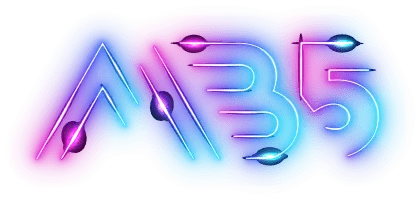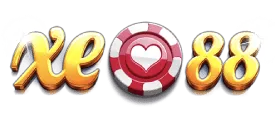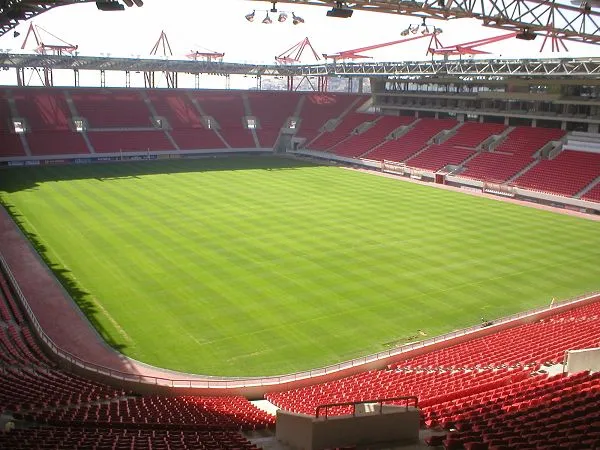In the year 2010, Evangelos Marinakis, a successful shipping magnate, purchased the club from Sokratis Kokkalis. The initial year under his administration Marinakis was appointed the fan favorite Ernesto Valverde as coach (who returned for a second stint at this club) and hired players with international connections like Albert Riera, Ariel Ibagaza, Kevin Mirallas, Marko Pantelic, and Francois Modesto. The result was that Olympiacos was awarded the Greek title for the 38th time in the club's history, beating 13 points of the second-placed Panathinaikos.
In the 2011-12 season the roster of the team was strengthened by players such as Jean Makoun, Pablo Orbaiz, Ivan Marcano, Rafik Djebbour and Djamel Abdoun. Alongside Ernesto Valverde as their coach for the second time in a row, Olympiacos had a very prosperous campaign, both in the country as well as internationally. They took home each of the Greek league as well as the Greek Cup to complete the 15th domestic double in Olympiacos' history. For European events, Olympiacos performed well in their Champions League campaign, having been placed in Group F with Arsenal, Borussia Dortmund and Marseille. Despite scoring an impressive nine points, which included two awe-inspiring wins over Arsenal as well as Dortmund in their home stadiums (both with a score of 3-1) as well as an away win over Marseille (0-1) However, they were unable to progress to knock-out phase following Marseille's controversial 3-3 away victory in Dortmund in game 6. which saw Marseille score two goals within the final fifteen minutes of game to overcome initial 2-0 Dortmund advantage. Olympiacos continued to play in the Europa League where he was chosen to face Rubin Kazan. The Greek champions defeated the Russian team with two wins (1-0 at each of Kazan in Kazan and Piraeus) and advanced to face Metalist Kharkiv in the Last 16 of the tournament. They prevailed in the opening match at home in Ukraine by 1-0 with David Fuster scoring the winning goal (0-1) however, in the second match despite their lead early and the abundance of missed opportunities (they struck the woodwork twice during the first quarter) the Greeks conceded two goals over the final minutes of the match and were eliminated from the quarterfinals.
The end of the season Ernesto Valverde announced his decision to return to Spain which ended his second stint as a successful coach at Olympiacos. The club named that they had hired the Portuguese Leonardo Jardim as their new coach. The team was very successful throughout the Greek league, and enjoyed an impressive Champions league season, scoring nine points in Group B after a win against Arsenal (2-1 in the home of Arsenal) as well as Montpellier (1-2 at home, 1-2 in Montpellier and 3-1 at Piraeus). Despite their relatively strong performances, Leonardo Jardim was replaced by Michel, the Spanish director along with Real Madrid legend Michel. The team then went on to celebrate their 16th time in their history that they had won a double when they won the 40th Greek Championship, 15 points ahead of second PAOK in addition to winning their 26th Greek Cup after a 3-1 victory over Asteras Tripolis at the end of their final. This 40th Greek championship trophy gave Olympiacos their fourth Star above the emblem of the club that was a huge ambition for the team and particularly for supporters.
It was expected that the expectations of 2013-14 would be extremely impressive, especially following being signed by players like striker Javier Saviola, Joel Campbell, Roberto, Alejandro Dominguez, Vladimir Weiss, Delvin N'Dinga, and Leandro Salino. Olympiacos enjoyed a successful season , both internationally and domestically. In Europe they were dragged into Group C in the 2013-14 Champions League alongside Paris Saint-Germain, Benfica and Anderlecht. Following a good performances in their group Olympiacos came second in the group with 10 points and made it to the Last 16 at the expense of Benfica (1-0 victory in Piraeus one-sided draw at Lisbon) as well as Anderlecht (0-3 victory in Brussels and 3-1 victory from Piraeus). In the 16th round they were scheduled to face Manchester United. Olympiacos had a good performance, took the lead in the first leg by an easy score of 2-0 (Alejandro Dominguez's 38' and Campbell 55') In a game that they were completely dominant and failed to make it a 2-0 lead. Despite the advantage of two goals that brought them within striking distance of a quarter-final spot as the only time in their history since 1999. Olympiacos fell 3-0 at the end of their match at Old Trafford, having missed an incredible double opportunity to make it a 2-0 score within the first 40 seconds of the match. The Greek champions kept fighting throughout the last 10 minutes to score an important away goal however, they failed to score. While the ticket to the quarterfinals went to the club's grasp, Olympiacos' overall performance and the fact that the team was able to make it to the knockout round (round of 16) of the Champions League for the third time in the space of six years (2007-08 2009-10 and 2013-14) was a highly impressive European campaign. In the domestic arena, Olympiacos won their history's 41st Greek Championship very convincingly, 17 points clear of the second-placed PAOK.
In the season 2014-15, Olympiacos entered the 2014-15 Champions League group stage with hopes of repeating the previous year's success. They were in the group with Atletico Madrid Juventus along with Malmo FF. They performed well in the group and managed to beat the runners-up from last year's tournament Atletico 3-1 and eventually finalist Juventus 1-1 on The Karaiskakis Stadium, but they were not able to qualify for knockout phase in the final game. Olympiacos defeated Malmo FF 4-2 at home however, Juventus were drawn against Atletico in Italy and securing the vital one point needed to be qualified. If Olympiacos and Juventus had finished with the same number of points, Olympiacos would have qualified because of the highest overall scores (away goals) of their two matches (1-0 Olympiacos win in Piraeus and a 3-1 Juventus victory at Turin). Third place in the group handed Olympiacos the chance to play in the next round of the UEFA Europa League, where they were knocked out by ultimate third-placed Dnipro Dnipropetrovsk. On the domestic front, the team enjoyed an excellent season, and they achieved seventeen times in the history of their team. They took home the 42nd Greek Championship with 12 points more than the first Panathinaikos and also their 27th Greek Cup, beating Skoda Xanthi 3-1 in the final.
The 2015-16 season kicked off with a new coach replacing Marco Silva, who replaced Marco Silva took over the coaching duties of his fellow countryman Vitor Pereira. [91] The team was strengthened by the elite player Esteban Cambiasso as well as a host of players who have European experience in competition, such as Kostas Fortounis Felipe Pardo, Seba, Manuel Da Costa, Brown Ideye and Alfred Finnbogason. In a gruelling Champions League group that included Bayern Munchen, Arsenal and Dinamo Zagreb, Olympiacos managed to score 9 points with the 3-2 win away to their fellow Gunners on the Emirates Stadium, considered by many to be among the club's biggest European wins in the last two years, along with two wins over Dinamo (1-0 home and away, 2-1). The last matchday saw the team play Arsenal in the Karaiskakis stadium. They needed either a 1-0 or 2-1 loss to the Gunners as the most likely scenario, to make it to the knockout stage of the tournament based on the rule of away goals which was a 2-1 loss. Red-Whites ended up losing 3-0. They went on to continue their European journey through the UEFA Europa League, where they were eliminated by Anderlecht in the knockout phase. However, despite all of this, Olympiacos broke the record for the most European championship wins won by an Greek club, winning an impressive 97 victories over the 96 wins of the second-placed Panathinaikos at the end of summer of 2016. On the national level, Olympiacos had perhaps their most successful year in recent memory and the team was able to claim its third Greek Championship, and 6th consecutiveon the final day of February 2016. which is considered to be a record for national teams for the first time in a league season in which a championship is won. The team was able to complete their league season with a 30 point advantage against their arch rivals Panathinaikos and finished second. The team's score of 85 points over 30 matchdays and a 28-1-1 overall result breakdown that included 13 away wins as well as an unbeatable 15 wins in 15 home games can also be considered to be an all-time record for the country. Although, despite their hopes of completing their double in the Greek Cup, they failed to achieve this year's Greek Cup as they finished second to their opponents AEK following a 2-1 defeat during the championship final.
The 2016-17 season turned out to be a turbulent one for the club despite the addition of key players such as Oscar Cardozo, Tarik Elyounoussi, Alaixys Romao, Aly Cissokho, and Marko Marin. The major issues that emerged was the team's shocking removal from Israeli club Hapoel Be'er-Sheva after an aggregate loss of 1-0 during the 3rd qualifying stage of the UEFA Champions League, and the frequently changing of managers, which led the club to have been guided by five players during the course of the year: Marco Silva, Victor Sanchez (responsible for the club's exclusion of Hapoel), Paulo Bento, Vasilis Vouzas and Takis Lemonis. This team's UEFA Europa League journey was not as successful as previous European campaigns, beginning with a gruelling 3-1 aggregate win (1-1 prior to the extra period) in the final against Arouca during the finals. The season continued by securing the team's spot in the group stage, but only in second place to APOEL (in the group that also comprised Young Boys and Astana) before an incredibly heavy 5-2 aggregate loss in the knockout stage to Besiktas in the final 16 of the knockout phase (with goalkeeper Nicola Leali being highly responsible for 4 five goals conceded [9595) even though they had made it to the final 32 with the 3-0 aggregate victory against Osmanlispor. The frequent changes in the manager affected the team's consistency and pace in domestic competitions too. In the first instance, Olympiacos failed to qualify for the Greek Cup final after being defeated by AEK which advanced through rules of away goal following the aggregate score was 2-2. Furthermore although the Reds have won their fourth Greek Championship and their seventh consecutively for two times in Greek sports history were able to do it by having the advantage of six points (67 to 61) over PAOK.



 ENG
ENG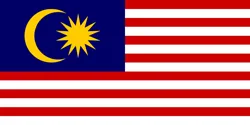 MYS
MYS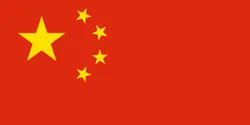 简体中文
简体中文